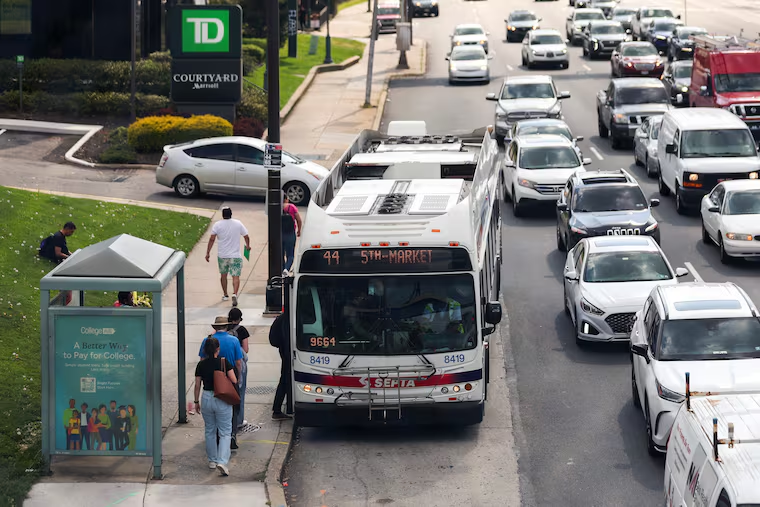SEPTA is among the Pa. transit agencies waiting on more state money amid budget talks
How much money is headed their way from Harrisburg could affect local and regional transit systems’ spending plans.

Pennsylvania budget negotiations have entered the radio-silence stage, leaving SEPTA and other agencies to sift for clues and guess what might happen with state subsidies for public transit.
How much money is headed their way from Harrisburg could affect local and regional transit systems’ spending plans. Legislative leaders, their aides, and administration officials are holding talks behind closed doors as the yearly budget process enters a crucial phase.
Gov. Josh Shapiro proposed generating $282.8 million by increasing the share of state sales-tax revenue dedicated to public transportation by 1.75 percentage points. The proposal would bring a projected $1.5 billion in additional money over five years.
SEPTA needs the full proposal to pass, without “taking a haircut,” in order to avoid service cuts of up to 20% and a possible fare increase, General Manager and CEO Leslie S. Richards said.
“The one thing I can say for sure is if it passes at the current levels, as proposed by the governor, there will be no fare increases as well as no service decreases,” Richards said.
By law, the state budget is supposed to be in place by June 30. Lawmakers are hoping to get it solved soon so they can head home for summer break campaigning in an election year.
SEPTA projects a $240 million deficit this year, triggered by the exhaustion of its share of the federal operating aid doled out to help transit agencies weather the COVID-19 pandemic.
As the state’s largest system, SEPTA would be due to get about $160 million in the first year. Officials say that, if necessary, they could run existing levels of service into September by tapping an emergency reserve fund.
Republican Senate Majority Leader Joe Pittman has said that he and his members have concerns about the cost of Shapiro’s proposal but are open to funding transit. They also believe that an increase for public transportation should be tied to more spending on highways and bridges, he said.
Several people working on the transit-funding issue said they remain optimistic a deal will come together, encouraged that there is no hard opposition and that talks are continuing. There are several competing priorities, however, including education funding.
A proposal advocated by the Keystone Transportation Funding Coalition contains the outlines of a potential deal that would increase state spending on public transit as well as for highways and bridges.
Such a package could bring together a bipartisan majority of lawmakers to get both things done — similar to what happened with Act 89 in 2013 under Republican Gov. Tom Corbett, transit officials and advocates say.
That law earmarked $450 million annually from the Pennsylvania Turnpike, backed by tolls, and some other revenue streams for transit and raised the gas tax for highway needs.
The funding coalition, which includes transit agencies, highway contractors, and business interests across the state, said it supports Shapiro’s proposal to raise $282.8 million.
On the other side, the coalition would cap motor vehicle sales tax revenue that now goes into the general fund and divert future growth in that revenue to the Pennsylvania Department of Transportation for debt service on 30-year bonds. Such a move would raise about $500 million more for roads over two to three years, the group said.